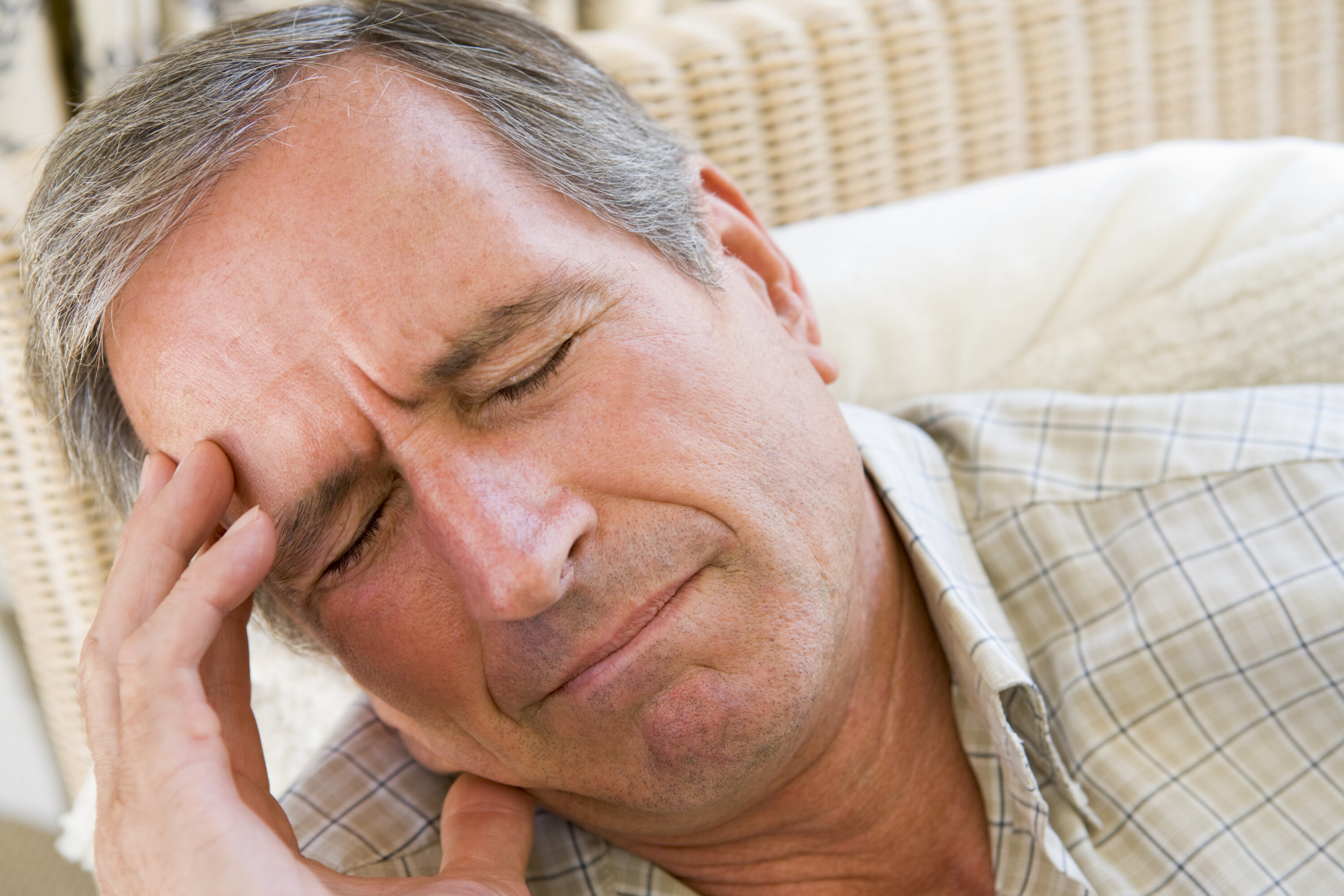Headache triggers—and how to avoid them
Nearly everyone has experienced a headache. Researchers estimate that 95 percent of women and 91 percent of men have experienced a headache in the last year. A headache can be a minor, occasional inconvenience or it can be a reoccurring event that hinders life. There are two basic types of headaches. A primary headache is brought on by problems with the pain-sensitive structures in the head. A secondary headache is a symptom of a disease ranging from acute sinus infections to brain tumors. Secondary headaches can be very severe and need the attention of a doctor. In contrast, primary headaches can often be treated and even avoided. Here are a few ways to cope with the two most common types of primary headaches.
Tension headaches
About three out of every four adults experience tension headaches making them the most common type of headaches. A tension headache is usually a dull, squeezing pain felt on both sides of the head and sometimes in the shoulders or neck. The headaches lasts anywhere from 20 minutes to two hours. Most tension headaches can be treated with over-the-counter pain medications like acetaminophen or aspirin.
Migraine headaches
This type of headache is usually more severe but occurs less often than tension headaches. Neurologists speculate that migraines are caused by changes in the brain’s blood flow and nerve cell activities. There is also a genetic connection with migraines since about 70 percent of the people who suffer migraines have a close relative who has experienced migraines. Sometimes migraines can be treated with over the counter medications but in some cases, stronger prescription pain medication is needed.
Avoiding headaches
Although the causes for headaches can vary from person to person, there are some ways to reduce the chances of getting a headache. Here are seven suggestions for preventing headaches.
Stay hydrated – Not drinking enough water can lead to a headache. Focus on drinking water throughout the day to avoid dehydration. If a headache is felt, be sure to start to treat it by drinking water.
Limit alcohol – Drinking alcohol may make you feel relaxed but it also acts as a diuretic, causing the body to lose fluid and electrolytes leading to dehydration. Alcohol is also a vasodilator, which means it widens the blood vessels and allows blood to flow more freely. This can cause a headache in some people.
Watch your sleep patterns – People who get less than six hours of sleep per night have more frequent and more severe headache than people who get more than six hours of sleep per night. However, too much sleep can also cause a headache. The goal is to try to get between seven to nine hours of sleep per night.
Give essential oils a try – Some people have reported success with using essential oils, which are liquid concentrates of aromatic compounds from plants. The aromas of peppermint and lavender are often used to reduce and prevent headache pain.
Drink caffeinated beverages – Coffee, tea and other caffeinated beverages can provide relief or help prevent a headache. In general, caffeine can boost your mood, increase alertness and constrict the blood vessels, which can aid in dealing with headache symptoms. Caffeine can also help common pain medications like acetaminophen be more effective. However, caffeine withdrawal can also cause a headache so it is best to monitor your caffeine intake.
Steer clear of strong odors – Some people have a sensitivity to strong odors which can cause a headache. Reducing exposure to strong perfume, cleaning fluids and other odors can reduce the chances of developing a headache.
Control nitrate intake – Nitrates and nitrites are common food preservatives used in hot dogs, sausages and bacon. They can cause blood vessels to expand and bring on a headache when eaten too often or in a large quantity.
Controlling pain at all times
Headaches and other kinds of pain are never welcome. Controlling pain, especially after a medical event, can be challenging. Taking a simple pain medication is often not enough to bring relief, which is why some people wisely choose to recover in a place where pain can be effectively managed by experienced professionals. When pain is controlled, recovery time is less stressful and often quicker.
Whitehall of Deerfield has long been regarded as the premier short-term care provider on the North Shore. Guests receive personalized one-on-one physical, occupational and speech therapies seven days a week from a team of top therapists who ensure patients are getting the best care possible. The physical therapists offer specific exercises to address pain while the occupational therapists provide strategies on how to control the pain during everyday activities. The latest techniques, as well as expert pain management and wound care, are provided to help make the stay as short and safe as possible.
Guests at this elegant rehabilitation center feel pampered by an attentive staff. Guest rooms feature attractive furnishings, WiFi, concierge service, voice mail, in-room dining, Starbucks coffee and snacks, exclusive 24-hour movie channel, delivery of a daily newspaper and more. A gourmet coffee shop and ice cream parlor also offers complimentary baked goods and ice cream treats throughout the day.
For a superior and safe recovery in a luxurious setting, choose Whitehall of Deerfield. Visit whitehallofdeerfield.com or call 847-729-9090 for additional information.

